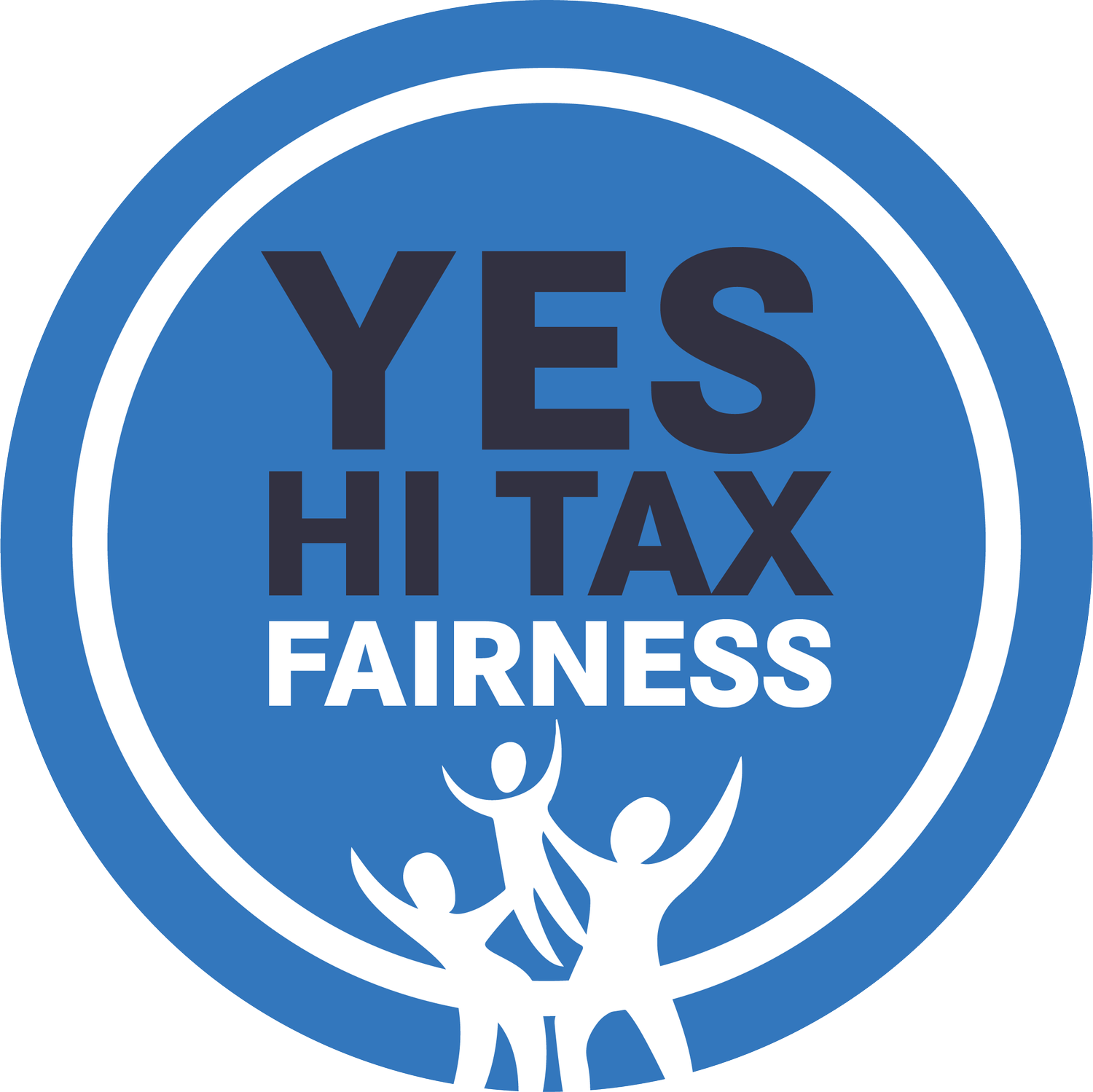Who We Are
The Hawaiʻi Tax Fairness coalition is made up of dozens of community organizations, nonprofits and business dedicated to ensuring a prosperous future for our communities through smart and fair tax policy.
Hawaiʻi's most pressing problems—the housing shortage, cost of living burdens, the homelessness crisis, climate change-fueled environmental hazards, and more—increasingly threaten to jeopardize the health of our people and communities.
To address these problems, and secure a prosperous future for our keiki, the state needs tax revenue to invest in our schools, hospitals, infrastructure, parks, programs for working families, and the development of truly affordable housing.
We believe the state should collect it from those who can afford to pay more—wealthy taxpayers who have been doing better than ever in recent years thanks, in part, to tax policies that favor the rich.
Not every member organization works on all of the bills supported by the coalition. To join the coalition

